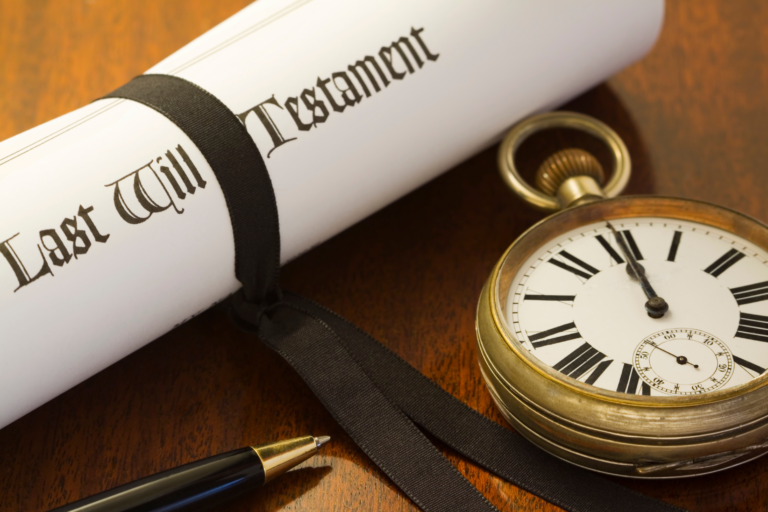Dealing with real property during Florida probate can be complex and challenging, especially if there are multiple heirs, creditors, or other interested parties involved.
Below, we will discuss some important things you should be aware of when dealing with real property during probate in the Sunshine State.
There Is More Than One Type of Probate
The first thing you need to know about probate is that there is more than one type of probate administration. The type of probate that applies to a particular estate depends on several factors, such as:
- Whether the deceased has been dead for more than two years
- The value of the assets
- The location of the assets
- The domicile of the decedent
- The existence of a will or other estate planning documents
Depending on these factors, the estate may be subject to one of the following types of probate in Florida:
- Summary administration:
This is a simplified and expedited form of probate that can be used if the value of the entire estate is less than $75,000, or if the decedent died more than two years ago. Summary administration does not require a personal representative and can be completed in a matter of weeks or months.
- Formal administration:
This is a more complex form of probate that is used for most estates that involve real property. It requires a personal representative who is responsible for managing the estate, paying the estate’s debts and taxes, and distributing the assets to the heirs or beneficiaries. Formal administration can take several months or even years to complete.
- Ancillary administration:
This is a special form of probate that is used when the owner of the assets was not a resident of Florida but owned property in the state. Ancillary administration is usually done in conjunction with the primary probate that is conducted in the state or country where the decedent was domiciled.
Probate Is Not Unavoidable
Some types of real property can avoid probate if they are owned in certain ways. If you want to avoid probate, consider using the following ownership methods:
- Joint tenancy with right of survivorship: This means that two or more people own the property together and when one of them dies, the surviving owner automatically inherits the property without probate.
- Tenancy by the entirety: This is similar to a joint tenancy but applies only to married couples. It also provides some protection from creditors of one spouse.
- Life estate: This form of ownership allows two or more people to have an ownership interest in the property for different periods of time. The person holding the life estate (also known as the “life tenant”) owns the property during his/her lifetime. Upon the death of the life tenant, the property passes to the other owner (the “remainderman”).
- Trust: This means that the owner of the property transfers it to a trust, which is a legal entity that holds and manages the property for the benefit of the beneficiaries named in the trust document. The trust can specify how the property will be distributed after the death of the Settlor (previous owner), without probate.
Transferring Real Property During Probate Can Be Tricky
Transferring real property during probate is not a simple or straightforward process. It involves several steps and procedures that must be followed carefully and correctly, such as:
- Opening the probate case:
This involves filing a petition for probate with the court in the county where the property is located, along with the original will (if any) and other supporting documents.
The court will then appoint a personal representative and issue letters of administration, which authorize the personal representative to act on behalf of the estate.
- Inventorying and appraising the property:
This involves making a list of all the assets and liabilities of the estate, including the real property, and determining their fair market value as of the date of death. The personal representative may hire a professional appraiser to assist with this task.
- Distributing the property:
This involves transferring the title and possession of the property to the rightful heirs or beneficiaries, according to the will or the laws of intestacy (if there is no will).
During this part of the process, the personal representative may need to resolve any issues or disputes that may arise among the heirs or beneficiaries.
Complications May Arise
There are many potential issues and complications that may arise during the probate process, such as:
- Probate litigation:
A lawsuit may be filed over the validity of the will, the appointment of the personal representative, the payment of creditors, the distribution of assets, or any other aspect of the probate process.
Probate litigation can be costly, time-consuming, and stressful, and it can delay the transfer of assets to the beneficiaries. In a probate case, litigation can be initiated by any interested party, such as an heir, a beneficiary, or a creditor.
- Probate fraud:
Theft or mismanagement of the estate assets, including the real property, by the personal representative or anyone else involved in the probate process can result in the loss or damage of the real property or the wrongful transfer of the property to someone.
- Probate delays:
Delays can affect the transfer of the real property as well as its condition and value, and they can sometimes be inevitable, due to various factors, such as:
- The complexity of the estate
- The size and value of the property
- The number and location of the heirs or beneficiaries
- The existence of a will
- The cooperation and communication among the parties
- The availability and efficiency of the court and the personal representative
- The occurrence of any unforeseen events or circumstances
Dealing with Real Property During Florida Probate Is Easy When You Work with Experts
As you can see, dealing with real property during Florida probate involves many steps and procedures that must be followed carefully and correctly, and it can pose many challenges and risks for the parties involved. That is why it is highly advisable to hire a probate attorney to assist you with the process.
At Jurado & Associates, P.A., we understand that probate can be stressful and overwhelming, and we are here to make it easier and smoother for you. If you are interested in hiring us or if you have any questions, please do not hesitate to contact us. You can reach us by phone at (305) 921-0976, by email at [email protected], or by WhatsApp at +1 (305) 921-0976.






